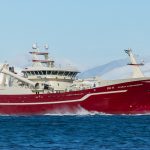The Commission tabled today a strategy for the protection of vulnerable deep sea ecosystems from destructive fishing practices. It also adopted a proposal for a legal ban on the use of harmful bottom gear from the high sea areas concerned. This initiative is fully in line with the recommendations issued by the United Nations General Assembly (UNGA) last December. In today’s Communication the Commission outlines the initiatives that the EU will take to strengthen international action in the UN, Regional Fisheries Management Organisations (RFMOs) and relevant international conventions to protect vulnerable marine habitats. For high sea areas not yet covered by RFMOs, the Commission proposes an innovative scheme that will require fishermen to obtain authorisation to operate in a defined area prior to starting their fishing campaign. These fishing permits may be issued by the Member State concerned only if it has been ascertained that the planned fishing activities will not have significant adverse impact on fragile habitats. In addition, fishing at depths of more than 1,000 metres would also be prohibited to EU vessels. These initiatives to protect fragile ecosystems on the high seas form part of the proposed EU integrated Maritime Policy aimed at ensuring the sustainable use of the oceans and seas.
Commissioner for Fisheries and Maritime Affairs, Joe Borg, commented: "We take the precautionary approach seriously. The UN Resolution represents a real regime shift which the EU promoted. Today the Commission is proposing measures that will enable the EU to put deep-sea habitats on the high seas out of bounds for destructive bottom fishing gear. The EU will continue its work with all the relevant bodies to deepen and extend knowledge of these habitats, to develop RFMOs where they don’t exist yet, and to give existing ones more clout to implement effective protection measures."
The new Communication contains a detailed analysis of the principles that underlie the UNGA recommendation, and outlines the actions planned by the EU to implement it, both for its own vessels and in the context of the RFMOs and processes to establish RFMOs to which it will be a party.
Most EU vessels fishing on the high seas operate in areas where RFMOs are already in place or where the process of setting up an RFMO is well underway. In those areas the Commission will work to ensure that analogous measures are implemented to ensure the protection of vulnerable deep sea ecosystems on the basis of a precautionary approach and prior impact assessment. These measures may take the form of regulations agreed by RFMOs or interim arrangements between parties to future RFMOs.
However, in various parts of the world’s oceans no fishing management regime is currently operational. This is the case, for example, in the central and south-western Atlantic. For those waters the measures proposed by the Commission would require EU vessels fishing with bottom gear to apply for a special permit from their Member State. Such permits will only be issued after the Member State has carried out a prior assessment of the potential impacts of the vessel’s intended fishing activities, showing that such activities are not likely to have significant adverse impacts on vulnerable marine ecosystems. These evaluations must be based on the best available scientific information, and must adopt a precautionary approach. If a vessel fails to honour the terms of its agreed fishing plan, it will be sanctioned.
As an additional measure, the Commission proposes a complete ban on the use of bottom gear at depths below 1,000 metres in all areas where the new Regulation applies.
Under these proposals, should vessels authorised to fish encounter vulnerable ecosystems in the course of their operations, they must immediately cease fishing and move on. They must also report the precise location and nature of the site to the relevant authorities. Furthermore, once there is reliable scientific data pointing to the existence of vulnerable marine habitats. Member States should implement closures of these areas for all their vessels and pass this information to the Commission, which will then take steps to implement an area closure for all EU vessels. Vessels will be obliged to carry scientific observers, and their catches and record of compliance with the provisions of this regulation will be communicated by Member States to the Commission every six months.








